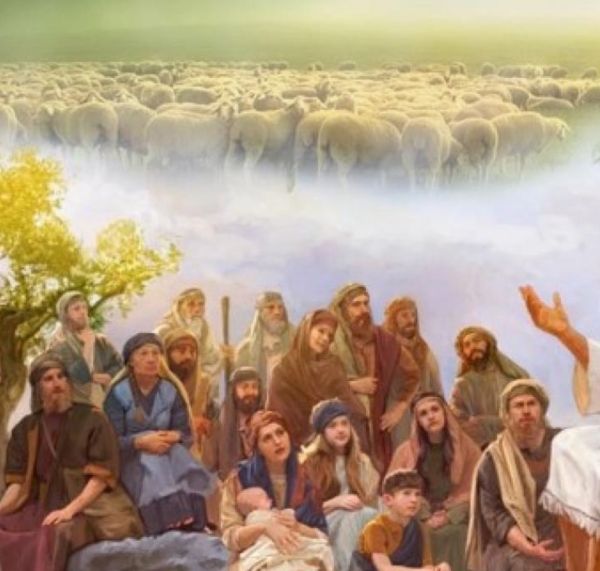With the Beatitudes, Mt begins with the theme of poverty in spirit and concludes with the beatitude of the persecuted, that is, of those who want to live the Gospel and love to the full.
For Francis and Clare of Assisi, humility of heart, inner and outer poverty, was the keystone of all the other Beatitudes; the identikit of Jesus and of every disciple who wants to walk in his footsteps.
Enchanting is a passage from the "Sacrum Commercium" (an allegorical operetta by an unknown author) contained in the Sources and which we quote here, concerning poverty.
"Thus, enamoured of your beauty, the Son of the Most High Father was closely united to you alone in the world and knew you to be faithful in all things.
Even before He came to earth from the splendour of His homeland, You prepared for Him a worthy dwelling, a throne on which to sit and a thalamus in which to rest, that is, the poorest Virgin, from whom He was born to shine upon this world.
To him as soon as he was born with solicitude you ran to him, so that he might find in you, and not in softness, a place that was pleasing to him.
He was laid, the evangelist says, in a manger, because there was no room for him in the inn.
In the same way, without ever parting from him, you always accompanied him, so that throughout his life, when he appeared on earth and lived among men, while the foxes had their dens and the birds of the air their nests, he had nowhere to lay his head.
And later when he, who had once opened the mouth of the prophets, opened his mouth to teach, he first wanted to praise you, he first exalted you with the words: Blessed are the poor in spirit, for theirs is the kingdom of heaven" (FF 1977).
Francis then, in his Admonitions, among other things extols the pure heart, precisely the poor, when he says:
"Blessed are the pure in heart, for they shall see God. Truly pure in heart are those who disdain earthly things and seek heavenly things, and never cease to adore and see the Lord God, living and true, with a pure heart and soul" (FF 165).
Clare echoes him in her Testament:
"If we live according to the aforementioned form of life, we will leave a noble example to others and, through labour of the shortest duration, we will earn the prize of eternal beatitude" (FF 2830).
The theme of wealth to be shared, of "not holding back" and of "giving back" to God and to one's brothers and sisters, is very much felt in Francis of Assisi.
In the Sources:
"Once, while returning from Siena, he met a poor man. It happened that Francis, due to illness, was wearing a cloak over his habit.
Looking with merciful eyes at the man's misery, he said to his companion:
"We must return the cloak to this poor man: for it is his. 'In fact we received him on loan, until we happened to find someone poorer than ourselves'.
"The companion, however, considering the state in which the pitiful father was, opposed a clear refusal: he had no right to forget himself, in order to provide for the other.
But the Saint:
"I believe that the Great Elector will accuse me of theft, if I do not give what I wear to those most in need."
"Blessed are the poor [...] for theirs is the kingdom of heaven" (Mt 5:3).
Monday, 10th wk. in O.T. (Mt 5:12a)












